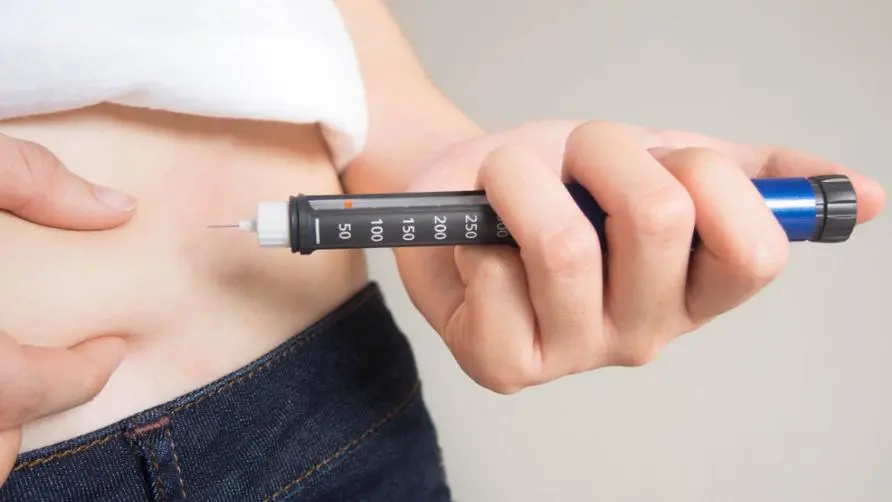She took 3 kinds of medicine and her blood sugar still exceeded the standard! Doctors reveal Taiwanese's three biggest concerns about sugar control: Is insulin treatment too slow to intervene?

Taiwanese people misunderstand the role of insulin! Doctors reveal three major hidden worries in sugar control
Be careful if blood sugar control exceeds the standard! Diabetes is not only one of the top ten causes of death in Taiwan all year round. The number of people with diabetes in Taiwan has exceeded 2.2 million, which means that one in every ten people suffers from diabetes. Diabetes is also closely related to four of the top ten causes of death, which has an impact on the health of Taiwanese people. Not to be underestimated.
Dr. Tsai Shize, chairman of the Diabetes Care Foundation, pointed out that many of the three major concerns about poor sugar control in Taiwan are related to misunderstanding of the effects of insulin. Even though many people with diabetes use a variety of oral hypoglycemic drugs, their blood sugar levels still cannot reach the target. They will not be willing to use insulin treatment until more than ten years have passed and the glycated hemoglobin exceeds 10%.
According to a survey by the Diabetes Care Foundation, there are three major hidden concerns in the medication situation of the diabetic community. The first is that 30% of patients with diabetes have taken three types of oral hypoglycemic drugs, but their blood sugar has not yet reached the standard; the second is that some patients have hard ears, and 50% of them have hard ears. People with diabetes whose blood sugar exceeds the standard (HbA1c is greater than 9%) must be advised to take more than two injections before they are willing to accept insulin treatment.
The third hidden concern of Taiwanese people regarding sugar control is that nearly 30% of people with diabetes believe that there are other treatments for diabetes and misunderstand that using insulin for treatment will affect kidney function or cause other complications. And accepting insulin treatment is equivalent to being labeled with “end-stage diabetes”, “hopeless”, “insulin is the last resort” and other wrong labels.
Early insulin treatment gives pancreatic islet cells a break
In response to the above myths, Dr. Li Hongyuan, CEO of the Diabetes Care Foundation and National Taiwan University Hospital, pointed out that when patients with diabetes still cannot achieve the target after taking three oral hypoglycemic drugs in combination, it is deemed that the treatment has failed, and insulin treatment should be considered to reduce complications. risk. Moreover, once the islet cell function is lost, it is irreversible. Early insulin treatment can help reduce the burden on the islet cells and give the islet cells a chance to breathe.
Dr. Li Hongyuan pointed out that insulin is a hormone that is naturally secreted by the human body and will not affect kidney function or cause complications. People with diabetes will use insulin because of insufficient secretion or poor action of insulin, which leads to elevated blood sugar. Treatment can not only stabilize blood sugar, but early use can also reduce excessive stimulation and depletion of pancreatic islet cells, allowing blood sugar control to be longer-lasting and more stable.
She took 3 kinds of medicine and her blood sugar still exceeded the standard! Doctors reveal the time point for insulin intervention
Dr. Cai Shize gives an example. A 72-year-old Ms. Chen has suffered from diabetes for more than 12 years. Although she has been taking three oral medications for five years, her HbA1C often soars above 8.5%. Even if she strictly controls her diet, she still develops retinopathy. After receiving insulin treatment for 3 months, she not only reduced the number of medications she took, but her HbA1C also dropped below 7%. Patients lamented that in the past, if treated early, they would have had a better quality of life.
Dr. Cai Shize explained that this year marks the 100th anniversary of the treatment of diabetes by insulin. So far, insulin has developed into multiple dosage forms such as fast-acting, long-acting, and mixed, which can provide choices for diabetics with different lifestyles. The survey also showed that 90% of people with diabetes become more confident in controlling their sugar after taking insulin. In order to slow down the crisis of pancreatic islet function decline in people with diabetes, when people with diabetes face three situations, they should consult a doctor to evaluate whether to use insulin treatment:
Use more than 3 types of oral hypoglycemic drugs, but still fail to achieve the target of glucose control (HbA1C is higher than 7%)
The initial diagnosis of glycated hemoglobin was too high (HbA1C higher than 9%)
When there are obvious symptoms of hyperglycemia that require early control of blood sugar, such as a large increase in food intake, frequent thirst and the need to drink a lot of water, a significant increase in urine output, and rapid weight loss.
Dr. Li Hongyuan reminded that since the diagnosis of diabetes, the function of human pancreatic islet cells has significantly declined, and will decrease by 4-5% year by year. Studies have pointed out that early use of insulin can delay the decline of pancreatic islet function. As long as any of the above conditions are met, you should discuss with the attending physician whether to use insulin treatment. People with diabetes can also use the “Islet Cell Breathing Project” health education website to learn more about the correct knowledge of sugar control.
Further reading:
High blood pressure standards revised down! Is poor control prone to serious illness and death? Doctors reveal the truth about blood pressure control





